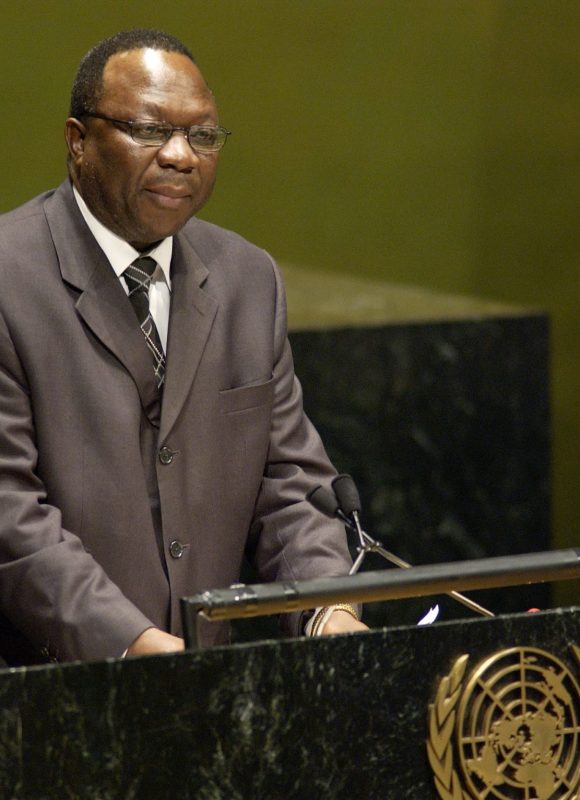PIONEER
Mninwa Johannes Mahlangu

Teacher | Politician | Negotiator
Born: 8 October 1952
“I can say that the character of our democratic state is engrained in our progressive Constitution. Thanks to the foresight of our leaders of the liberation and the aspirations of South Africans.”
Who is
Mninwa Johannes Mahlangu?
Served in the Lebowa Parliament in the 1980s and subsequently as a negotiator during the transition to a democratic South Africa. Active member of the African National Congress (ANC).
Professions
and Roles
Teacher, politician, diplomat, Ambassador of the Republic of South Africa to the United States.
Best Known For
Active politician during apartheid in the Lebowa homeland. Member of the Constitutional Assembly and chaired Theme Committee 2.
Life highlights
- Mahlangu began his career in teaching at Zenzeleni High School from 1973 to 1976 and then at St Paul High School from 1977 to 1978.
- He served as Assistant Secretary of the Transvaal United African Teachers Association between 1973 and 1976.
- Mahlangu was elected to the Lebowa Parliament in 1982. He served as Deputy Speaker of the Lebowa Parliament from 1987 to 1988 and Speaker in 1989.
- Mahlangu served in the Cabinet of the Lebowa Government as Minister of Home Affairs from 1990 until 1991, Minister of Education from 1992 until 1993, and Minister of Public Services.
- Mahlangu was a negotiator at CODESA and the Multi-Party Negotiating Forum (MPNF) from 1991 to 1994. He was appointed as Co-Chairperson of these bodies in 1993.
- Mahlangu was a member of the Transitional Executive Council from 1993 until 1994.
- He served as a Member of the National Assembly and a representative of the African National Congress (ANC) and the Constitutional Assembly in 1994.
- Mahlangu was elected permanent Deputy Chairperson of the National Council of Provinces (NCOP) in 2002 and as Chairperson in 2009.
- He was appointed Ambassador of the Republic of South Africa to the US in 2015.
IN THEIR OWN WORDS
“One remembers the effort we all put into coming up with the country’s Constitution. We criss-crossed the country to listen to the people through public hearings and workshops. This resulted in the receipt and consideration of millions of submissions from members of the public and civil society over and above the inputs of political parties.
It was clear to me that the new process of negotiations to end apartheid was to also require enormous sacrifices. These included the discipline and the paradigm shifts that had to occur among all the participants in the full knowledge that the task we were to embark upon was immense and sometimes fragile.”
I can say that the character of our democratic state is engrained in our progressive Constitution. Thanks to the foresight of our leaders of the liberation and the aspirations of South Africans.”
– Mninwa Mahlangu
Parliament of the Republic of South Africa (2018) Theme Committee Book Series 1-6
